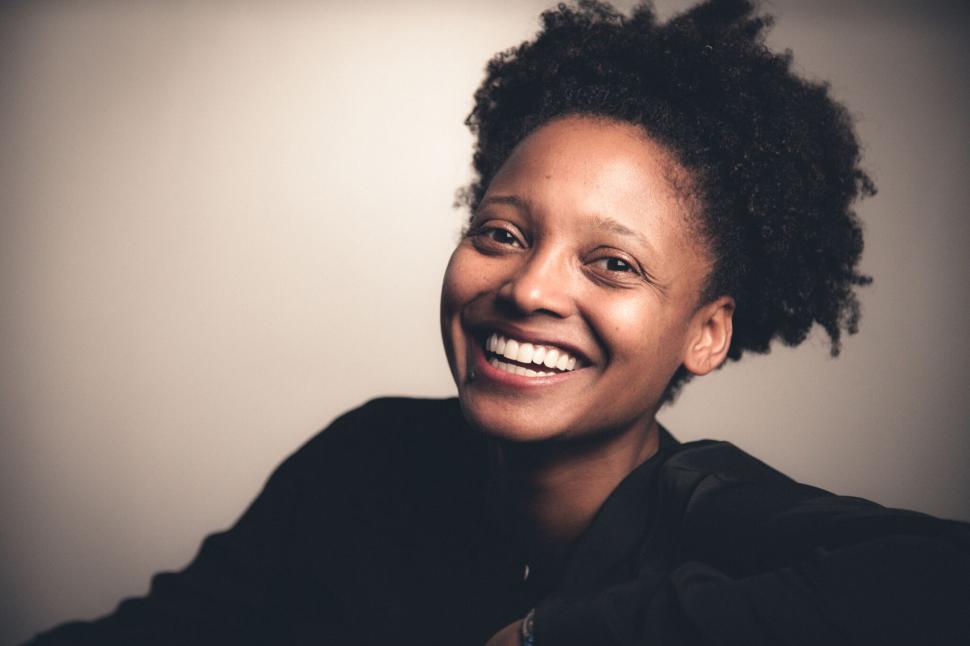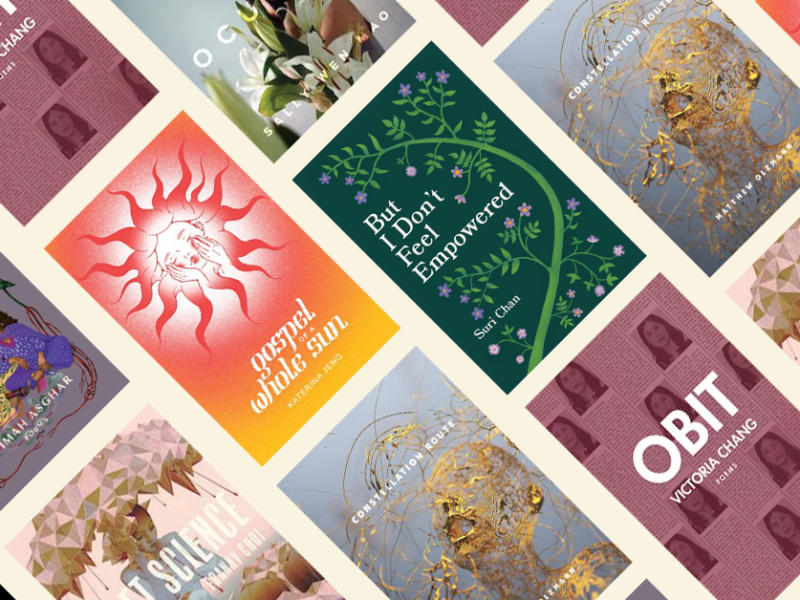Photo by Rachel Eliza Griffiths. Courtesy of Blue Flower Arts & The Poetry Foundation
When you look at the list of U.S. Poet Laureates, you will have to scroll down pretty far before you encounter any women. For most of the 20th and 21st century, poetry was viewed as a man’s game even though both men and women have been writing incredible poetry for centuries. However, since the 1990s, some truly badass women have broken the glass ceiling and taken the coveted poet laureate title.
Below is a list of the most recent female recipients whose work will forever be remembered and honored as some of the greatest poetry in history.
Mona Van Duyn
Mona Van Duyn served as the first woman Poet Laureate of the United States from 1992 to 1993. Van Duyn’s first collection of poems, Valentines to the Wide World was published in 1959, followed by A Time of Bees, which appeared as part of the University of North Carolina Press Contemporary Poetry Series in 1964.
Poet Alfred Corn said, “Mona Van Duyn has assembled, in a language at once beautiful and exact, one of the most convincing bodies of work in our poetry” and Cynthia Zarin has called her work “notable for its formal accomplishment and for its thematic ambition,” adding that the “searching intelligence of the persona we have learned to know in her poems, combined with the humor, technical ease, and the blend of the abstract and the quotidian that the poet has made her own have resulted in that rare good thing: a strong, clear voice, original without eccentricity.”
Van Duyn rap sheet of awards and fellowships is lengthy, from the Bollingen Prize, the Hart Crane Memorial Award, the Ruth Lilly Prize, to the Academy of American Poets, the American Academy of Arts and Sciences, the Guggenheim Foundation, and the National Endowment for the Arts, just to name a few.
“I believe that good poetry can be as ornate as a cathedral or as bare as a potting shed, as long as it confronts the self with honesty and fullness,” Van Duyn said. “ Nobody is born with the capacity to perform this act of confrontation, in poetry or anywhere else; one’s writing career is simply a continuing effort to increase one’s skill at it.”
Rita Dove
Rita Dove served as poet laureate of the United States from 1993 to 1995, and as poet laureate of Virginia from 2004 to 2006. She has been rewarded greatly for her poetic achievements. Her books of poetry include Collected Poems 1974-2004, recipient of the 2017 NAACP Image Award, the 2017 Library of Virginia Award and a finalist for the 2016 National Book Award; Sonata Mulattica, winner of the Hurston Wright Legacy Award; On the Bus with Rosa Parks, named a New York Times Notable Book of the Year and a finalist for the National Book Critics Circle Award; and Thomas and Beulah, which won the 1987 Pulitzer Prize for poetry. Her work explores a wide landscape, from ballroom dancing to classical music, from historical and political events to art history.
She is a Commonwealth Professor of English at the University of Virginia, where she has been teaching since 1989, and a trained classical cellist and gambist.
Louise Glück
Considered by many to be one of America’s most talented contemporary poets, Glück is known for her poetry’s technical precision, sensitivity, and insight into loneliness, family relationships, divorce, and death. Although her poems have been regarded as “dark” or “bleak,” Glück’s writing is extremely inclusive and relatable as she takes on raw and intense human subjects like disappointment, rejection, loss, and isolation.
Glück’s Pulitzer prize-winning and most popular collection, The Wild Iris, is written in three segments, set in a garden and imagines three voices: flowers speaking to the gardener-poet, the gardener-poet, and an omniscient god figure. In the New Republic, Helen Vendler described Glück’s work as “It was not a voice of social prophecy but of spiritual prophecy—a tone that not many women had the courage to claim.” In 2003, Glück was named the 12th U.S. Poet Laureate. She is currently writer-in-residence at Yale University and lives in Cambridge, Massachusetts.
Kay Ryan
Acknowledged as one of the most original voices in the contemporary landscape, Kay Ryan is the author of several books of poetry, including Flamingo Watching, The Niagara River, and Say Uncle. Her book The Best of It: New and Selected Poems won the Pulitzer Prize for Poetry.
According to the Poetry Foundation, “Ryan’s tightly compressed, rhythmically dense poetry is often compared to that of Emily Dickinson and Marianne Moore; however, Ryan’s often barbed wit and unique facility with “recombinant” rhyme has earned her the status of one of the great living American poets” She was appointment as U.S. Poet Laureate in 2008. She held the position for two terms, using the appointment to champion community colleges.
In an interview with the Washington City Paper at the end of tenure, Ryan called herself a “whistle-blower” who “advocated for much underpraised and underfunded community colleges across the nation.”
Natasha Trethewey
Natasha Trethewey‘s first collection of poetry, Domestic Work was selected by Rita Dove as the winner of the inaugural Cave Canem Poetry Prize for the best first book by an African American poet and won both the 2001 Mississippi Institute of Arts and Letters Book Prize and the 2001 Lillian Smith Award for Poetry. Dove said, “Trethewey eschews the Polaroid instant, choosing to render the unsuspecting yearnings and tremulous hopes that accompany our most private thoughts—reclaiming for us that interior life where the true self flourishes and to which we return, in solitary reverie, for strength.”
In 2012, Trethewey was named as both the state poet laureate of Mississippi and the 19th U.S. poet laureate by the Library of Congress. She was also elected a Chancellor of the Academy of American Poets in 2019 at which Academy Chancellor David St. John said Trethewey “is one of our formal masters, a poet of exquisite delicacy and poise who is always unveiling the racial and historical inequities of our country and the ongoing personal expense of these injustices.
Rarely has any poetic intersection of the cultural and personal experience felt more inevitable, more painful, or profound.” Natasha is now the Board of Trustees Professor of English at Northwestern University in Evanston, Illinois.
Tracy K. Smith
In 2017, Tracy K. Smith was appointed poet laureate of the United States. All four of her poetry collections have been honored with a prestigious award. Wade in the Water was the winner of the 2019 Anisfield-Wolf Book Award in Poetry and shortlisted for the 2018 T. S. Eliot Prize.
Her debut collection, The Body’s Question won the Cave Canem Poetry Prize in 2002. Her second book, Duende won the 2006 James Laughlin Award from the Academy of American Poets and her collection Life on Mars won the 2012 Pulitzer Prize for Poetry.
Smith is the recipient of the 2014 Academy of American Poets Fellowship at which Academy of American Poets Chancellor Toi Derricotte said: “The surfaces of a Tracy K. Smith poem are beautiful and serene, but underneath, there is always a sense of an unknown vastness. Her poems take the risk of inviting us to imagine, as the poet does, what it is to travel in another person’s shoes. The Academy is fortunate to be able to confer this fitting recognition on one of the most important poets of our time.”
As one of my all-time favorite poets, it’s exciting to see such a power writer receive such important recognition for her original and inspiring body of work.
Joy Harjo
This past June 2019, Joy Harjo was appointed the new United States poet laureate and the first Native American Poet Laureate in the history of the position. Needless to say, this was a groundbreaking, exciting achievement for such an honored and important poet.
Born in Tulsa, Oklahoma as a member of the Mvskoke/Creek Nation, Harjo is the author of several books of poetry, including An American Sunrise, The Woman Who Fell From the Sky which received the Oklahoma Book Arts Award; and In Mad Love and War which received an American Book Award and the Delmore Schwartz Memorial Award. Her memoir Crazy Brave won the 2013 PEN Center USA literary award for creative nonfiction.
Chancellor Alicia Ostiker said of Harjo after she won the Wallace Stevens Award for proven mastery in the art of poetry in 2015, “Throughout her extraordinary career as poet, storyteller, musician, memoirist, playwright, and activist, Joy Harjo has worked to expand our American language, culture, and soul. A Creek Indian and student of First Nation history, Harjo is rooted simultaneously in the natural world, in the earth—especially the landscape of the American southwest—and in the spirit world. Aided by these redemptive forces of nature and spirit, incorporating native traditions of prayer and myth into a powerfully contemporary idiom, her visionary justice-seeking art transforms personal and collective bitterness to beauty, fragmentation to wholeness, and trauma to healing.”
Harjo’s poetry is committed to social and political ideas as she fights for Native American justice, to end violence against women and the nature of compassion and forgiveness.
We are so lucky to be alive in a time where we have such a fearless poet representing the Native American community. Her poetry is truly a gift.




